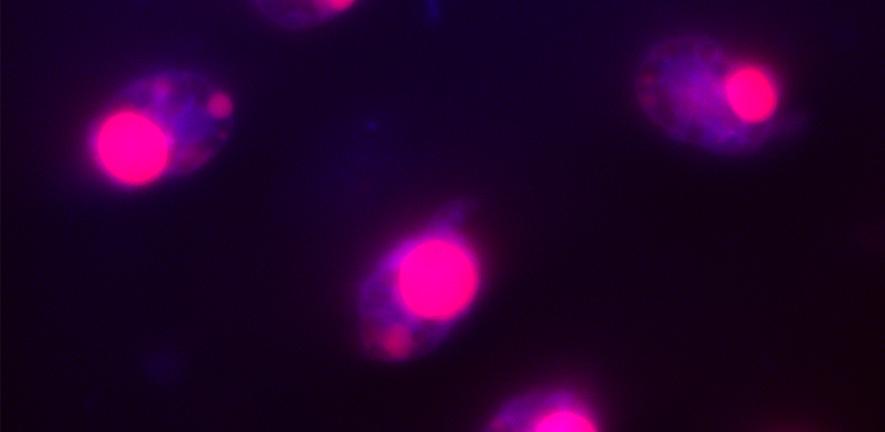
An international group of researchers, led by Dr Ellen Nisbet, Dr Ross Waller and Professor Christopher Howe, have developed a new tool in the study of coral bleaching.
Coral reefs are some of the most ecologically diverse marine environments. At the base of the ecosystem is coral, an animal that lives in symbiosis with algae known as dinoflagellates. Normally, the dinoflagellate algae photosynthesise, providing energy to the coral host. However, rising sea temperatures cause the symbiosis to break down, and the dinoflagellates are expelled, resulting in coral bleaching.
Little is known about how rising temperatures actually cause breakdown of the symbiotic relationship. In work published in the journal eLife, the team describes the development of a new method to modify dinoflagellate algae genetically, which until now has not been possible. This tool can now be used to study in detail how rising temperatures affect the algae, providing clearer understanding of the process of coral bleaching.
This work was supported by funding from the Gordon and Betty Moore Foundation.
